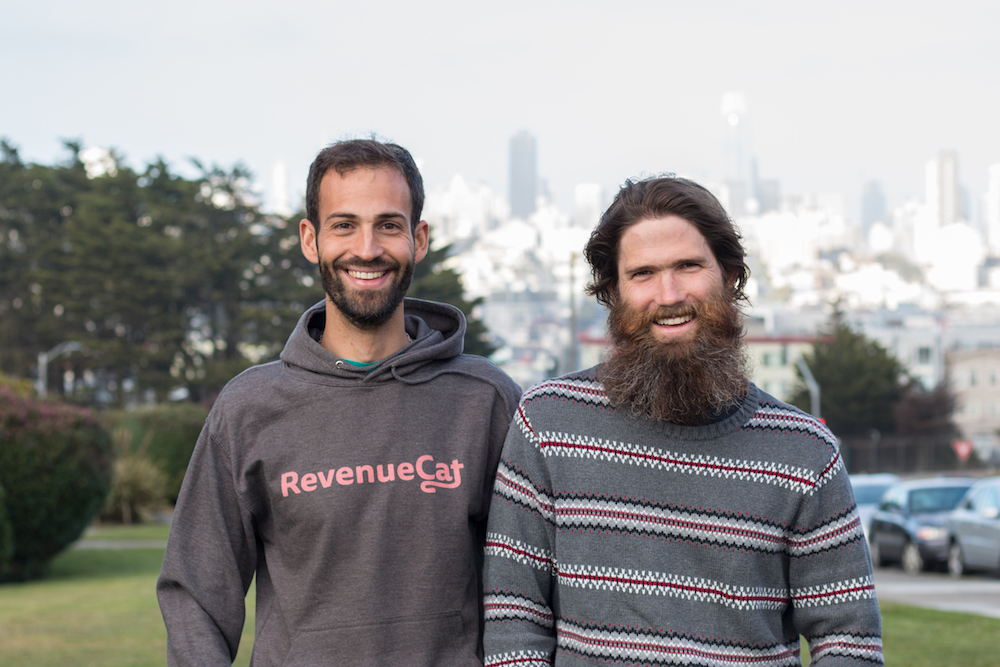Music
Trailers
DailyVideos
India
Pakistan
Afghanistan
Bangladesh
Srilanka
Nepal
Thailand
StockMarket
Business
Technology
Startup
Trending Videos
Coupons
Football
Search
Download App in Playstore
Download App
Best Collections
Technology
Root Insurance, an Ohio-based car insurance startup with a tech twist, said Wednesday it has raised $100 million in a Series D funding round led by Tiger Global Management, pushing the companyvaluation to $1 billion.
Redpoint Ventures, Ribbit Capital and Scale Venture Partners all participated as follow-on investors in this latest round.
The car insurance company, founded in 2015, plans to use the funds to expand into existing markets and make inroads into new states, as well as hire more employees such as engineers,actuaries, claims and customer service to support increased scale.
Root provides car insurance to drivers. Not exactly a new concept. But it establishes the premium customers based on their driving along with other factors. Drivers download the app and take a test drive that typically laststwo or three weeks. Then Root provides a quote that rewards good driving behavior and allows customers to switch their insurance policy. Customers can purchase and manage their policy through the mobile phone Root app.
Root says its approach allows good drivers to save more than 50 percent on their policies compared totraditional insurance carriers.
The company uses AI algorithms to adjust risk and sometimes provide discounts. For example, a vehicle with an advanced driver assistance system that it deems improves safety might receive further discounts.
&Root Insurance is leading digital innovation in U.S. auto insurance,&Lee Fixel, a partner at Tiger Global Management said in a statement. &This industry is ripe for change, and we are excited to invest in a team that has the expertise, vision, and momentum to deliver real results. We look forward to growing our partnership with Root and helping them expand their footprint across the United States.&
The company has grown from its home market of Ohio into 20 other states in the past two years. The company plans to expand to all50 states and Washington, D.C., by the end of 2019.
Drive Capital and Silicon Valley Bank are also investors in the company.
- Details
- Category: Technology
Read more: A new unicorn is born: Root Insurance raises $100 million for a $1 billion valuation
Write comment (95 Comments)After finally settling on a new apartment, packing your last box and rushing out to pick up your moving van for the measly three hours you could book it — have you ever taken a moment to think, &Wow, this is so easy&
Nope, and neither has anybody else. But Shyft, a logistics platform company based in San Francisco, is hoping to change that.
Originally named Crater, the company announced today a re-brand of its name and mission to focus on helping improve the corporate relocation process for millions of movers per year. The company is bringing with it three years of experience developing software and technology to help moving companies provide better estimates and service to customers.
&We spend hours thinking about these global citizens who are moving everyday and literally shifting their lives,& Shyft CMO Rajiv Parikh told TechCrunch. &They&re moving to new communities, they&re finding new schools, they&re finding new opportunities. Ita monumental and pivotal moment in someonelife.&
The process works two-fold. First, Shyft is continuing its partnerships with moving companies and selling its software to them in order to help update their portals and make the process as seamless as possible for their existing customers. As part of these partnerships, Shyft is able to create a reliable network of moving companies and services that it can utilize in the second part of its service — connecting with corporate Fortune 500 companies to help their transferees easily and intuitively complete their moving process.
Through the platform, employees planning a move can fill out information like how many boxes they&re moving, what their housing needs will be and even what kind of food they like and dietary restrictions they have. With this data, Shyft will help direct them to the services they need and work to help them best integrate into their new communities.
Shyft works with corporate companies& lump-sum funds to help employees find the best price possible for their move. And transferees can use the services for free (or be reimbursed the difference).
&A traditional moving company is focused on moving — dollars and cents — [and] they want the largest and the biggest moves out there,& Shyft CEO Alex Alpert told TechCrunch. &From our perspective, we&re agnostic to that. If itin someonebest interest to sell their sofa and buy a new one, we want to help facilitate that.&
In a recent collaboration with eBay, the company says it has seen large increases in the number of employees using its portal instead of trying to figure out logistics on their own.
&We have monitored the use of Shyft in our lump sum program and have seen a marked increase in the willingness of employees to engage with Shyft to identify the best solution to their moving needs,& eBay Director of HR Global MobilityEric Halverson said in a statement. &Shyft is helping our employees optimize their lump sum allowance with a variety of moving solutions geared to their personal needs and circumstances.&
Alpert says that Shyft is now focusing on growing and refining its service, and this summer was accepted to join Moderne Venturesummer Passport Program. The seven-month industry immersion program is designed to help companies refine theirgo-to-market strategies and network with others working in the real estate, finance, insurance and home-services spaces.
- Details
- Category: Technology
Read more: Crater rebrands as Shyft to focus on helping global nomads move
Write comment (99 Comments)Latch announced this morning that it has raised $70 million in Series B funding.
The round was led by Brookfield Ventures, the investment arm of Brookfield Asset Management. As part of the deal, Brookfield Properties will also be installing Latch systems in its multi-family properties that are currently under development.
&We are thrilled to support Latch, the clear market leader in a nearly $25 billion space that is expected to grow at twice the rate of traditional access over the next several years,& said BrookfieldJosh Raffaelli in the funding announcement.
Lux Capital, RRE Ventures, Primary Venture Partners, Third Prime, Camber Creek, Corigin Ventures, Tishman Speyer and Balyasny Asset Management also participated int he new funding.
Latchsmart lock system is designed for apartment buildings rather than single family homes, allowing you to open doors with a smartphone, keycard or door code. It also allows residents to create temporary access codes for guests and service providers.
Speaking of service providers, Latch announced a pilot partnership with UPS earlier this summer that will allow UPS drivers to receive unique credentials for entering buildings to make deliveries.
Latch was founded five years ago, but stayed in stealth mode until 2016. It previously raised $26 million funding.
- Details
- Category: Technology
Read more: Latch raises $70M for its apartment smart lock system
Write comment (97 Comments)The Democratic National Committee has prevented an attempt to hack into its database of tens of millions of voters.
CNN and the Associated Pressreported on Wednesday, citing an unnamed party official, that the political organization was warned Tuesday of the attempt.
DNC officials reportedly contacted the FBI. When contacted, a spokesperson for the FBI declined to comment.
Lookout, a security firm, told TechCrunch that its staff detected a phishing page hosted on DigitalOcean, a cloud computing and hosting giant, which replicated a login page for NGP VAN, a technology provider for Democratic campaigns.
In the case of phishing attacks, hackers attempt to obtain the username and password for sensitive internal systems by tricking staff into entering their credentials on spoofed sites. Hackers can then reuse those credentials to log in themselves.
Jeremy Richards, principal engineer at the security firm, notified DigitalOcean of the phishing site, which was taken offline. Mike Murray, vice president of security intelligence, informed the DNC.
Itnot immediately known who was behind the attempted hack.
Bob Lord, DNCsecurity chief, briefed Democratic officials on the incident in Chicago on Wednesday. Lord did not immediately respond to a request for comment.
Itnot uncommon for political parties to store vast amounts of information on voters. Political parties and national committees often use the data to target voters with political messaging.
In recent years, several voter databases have leaked orwere exposed on unprotected servers for anyone to find.
Earlier this week, Microsoft said it thwarted an attempt by a Russian-backed advanced persistent threat group known as Fancy Bear (or APT28) to steal data from political organizations.
- Details
- Category: Technology
Read more: Hackers failed to hack into DNC voter database, says security firm
Write comment (98 Comments)2018 has been the year that AR promises came face-to-face with reality. While AppleARKit and GoogleARCore sparked a ravenous response from developers that had grown worried about VRnear-term market and the fate of AR headsets from Microsoft and Magic Leap, little seemed to resonate deeply with consumers.
That realization is part of the reason AR startups working on backend services and more base level development pipelines have seen so much success. Onstage at Disrupt SF 2018, we&ll be chatting with Anjney Midha, the CEO of an AR startup called Ubiquity6.
The startup was founded just a year ago but has already raised more than $37 million to solve some of the hardest augmented reality problems that companies like Google and Apple are working hard to solve, as well. Its backers include GoogleGradient Ventures, First Round, Benchmark and KPCB, where Midha previously ran a small fund.
The company is tackling problems like multiplayer interactions and world mapping as well as issues key to more immersive gameplay like making sure that virtual objects stay tied to physical markers in-between gaming sessions. Ultimately, the companywork is aiming to promote the Ubiquity6 app to be a hub for AR experiences that will have a development backbone that enables much deeper AR interactions for users.
Ubiquity6 is ambitious about the scale of their AR capabilities. While so many companies are focusing their efforts on how to capture AR interactions taking place in the living room, Ubiquity6 is actively working to map entire cities so it can deliver massive AR experiences that can turn heads (or at least phones).
We&re looking forward to chatting with Midha and hearing about how his startup is planning to compete with some of the worldbiggest tech companies in building out a digital reality thatprojected onto our own.
Thefull agenda is here. Passes for the show are available here.
- Details
- Category: Technology
Read more: Ubiquity6 CEO Anjney Midha is coming to Disrupt SF 2018
Write comment (96 Comments)Fifty-nine startups took the stage at Y CombinatorDemo Day 2, and among the highlights were a company that helps developers manage in-app subscriptions; a service that lets you create animojis from real photos; and asurplus medical equipment-reselling platform. Oh… and there was also a company thatdeveloped an entirely new kind of life form using e coli bacteria. So yeah, thathappening.
Based on some investor buzz and what caught TechCruncheye, these are our top picks from the second day of Y Combinator presentations.
You can find the full list of companies that presented on Day 1 here, and our top picks from Day 1 here.
64-x

With a founding team including some of the leading luminaries in the field of biologically inspired engineering (including George Church, Pamela Silver and Jeffrey Way from HarvardWyss Institute),64-xis engineering organisms to function in otherwise inaccessible environments. Chief executive Alexis Rovner, herself a post-doctoral fellow at the Wyss Institute, and chief operating officer Ryan Gallagher, a former BCG Consultant, are looking to commercialize research from the Institute aroundaccelerating and expanding the ability to produce functionalized proteins and sequence-defined polymers with diverse chemistries. Basically they&ve engineered a new life form that they want to use for novel kinds of bio-manufacturing.
Why we liked it:These geniuses invented a new life form.
CB Therapeutics

Sher Butt, a former lab directory at Steep Hill, saw that cannabinoids were as close to a miracle cure for pain, epilepsy and other chronic conditions as medicine was going to get. But plant-based cannabinoids were costly and produced inconsistent results. Alongside Jacob Vogan, Butt realized that biosynthesizing cannabinoids would reduce production costs by a factor of 10 and boost production 24 times current yields. With a deep experience commercializing drugs for Novartis and as the founder of the cannabis testing company SB Labs, Butt and his technical co-founder are uniquely positioned to bring this new therapy to market.
Why we liked it:Using manufacturing processes to make industrial quantities of what looks like naturebest painkiller at scale is not a bad idea.
RevenueCat

RevenueCathelps developers manage their in-app subscriptions. It offers an API that developers can use to support in-app subscriptions on iOS and Android, which means they don&t have to worry about all the nuances, bugs and updates on each platform.
The API also allows developers to bring all the data about their subscription business together in one place. It might be on to something, though it isn&t clear how big that something is quite yet. The nine-month-old company says itcurrently seeing $350,000 in transaction volume every month; itmaking some undisclosed percentage of money off that amount.
Read more about RevenueCat here.
Why we liked it: Write code. Release app. Use RevenueCat. Get paid. That sounds like a good formula for a pretty compelling business.
Ajaib
Indonesia is a country in transition, with a growing class of individuals with assets to invest yet who, financially, don&t meet the bar set by many wealth managers. Enter Ajaib, a newly minted startup with the very bold ambition of becoming the &Ant Financial of wealth management for Indonesia.& Why the comparison Because China was in the same boat not long ago — a country whose middle class had little access to wealth management advice. With the founding of Ant Financial nearly four years ago, that changed. In fact, Ant now boasts more than 400 million users.
China is home to nearly 1.4 billion, compared with Indonesia, whose population of 261 million is tiny in comparison. Still, if its plans work out to charge 1.4 percent for every dollar managed, with an estimated $370 billion in savings in the country to chase after, it could be facing a meaningful opportunity in its backyard if it gains some momentum.
Why we liked it: IfAjaibwealth management plans (to charge 1.4 percent for every dollar it manages) work out — and with a total market of $370 billion in savings in Indonesia — the company could be facing a meaningful opportunity in its backyard.
Grin

The scooter craze is hitting Latin America andGrinis greasing the wheels. The Mexico City-based company was launched by co-founder Sergio Romo after he and his partner realized they weren&t going to be able to get a cut of the big &birds& on the scooter block in the U.S. (as Axios reported). Romo and his co-founder have already lined up a slew of investors for what may be the hottest new deal in Latin America. Backers include Sinai Ventures, Liquid2 Ventures, 500 Startups, Monashees and Base10 Partners.
Why we liked it:Scooters are so 2018. But therea lot of money to be made in mobility, and as the challenge from Bird and Lime to Uber and Lyft in hyperlocal transit has revealed, thereno dominant player thattaken over the market… yet.
Emojer

Creating animated emojis made from real photos,Emojerjust might be the most fun you can have with a camera. The companysoftware uses deep learning algorithms to detect body parts and guides users in creating their own avatars with just a simple photo take from a mobile phone. Itreplacing deep Photoshop expertise and animation skills with a super simple interface. The avatars look very similar to Elf Yourself, a popular site that let you paste your friends& faces on dancing Christmas elves goes viral every year at Christmastime. Founders have PhDs in machine learning and computer vision.
Why we liked it:As the companychief executive said, Snap was for sexting, and Facebook was hot or not, so who says the next big consumer platform couldn&t be the Trojan horse of easily generated selfiemojis (akin to Elf Yourself)
OshAffordable Pharmaceuticals

OshAffordable Pharmaceuticalsis a public benefit corporation connecting doctors and patients with sources of low-cost, compounded pharmaceuticals. The company is looking to decrease barriers to entry for drugs for rare diseases. Three weeks ago the company introduced a drug to treat WilsonDisease. There was no access to the drug that treats the disease before in Brazil, India or Canada. It slashes the cost of drugs from $30,000 a month to $120 per month. The company estimates it has a total addressable market of $17 billion. &Generic drug pricing is a crisis, people are dying because they can&t get access to the medicine they need,& says chief executive Alex Oshmyansky. Oshmight have a solution.
Why we liked it:Selling lower-cost medications for rare diseases in countries that previously hadn&t had access to them is a good business thatgood for the world.
Medinas Health
Tackling a $75 billion problem of healthcare waste,Medinas Healthis giving hospitals an easy way to resell their used supplies. The company has already raised $1 million for its marketplace to help healthcare organizations buy and sell equipment. With a seed round led by Ashton Kutcher and Guy OsearySound Ventures, and General CatalystRough Draft Ventures fund, the company is also working to lower costs for cash-strapped rural healthcare centers.
Why we liked it:Finding uses for hospital equipment thatbeen lying fallow in corners is a big business. A $75 billion business if Medinas& estimates are correct. Add helping cut costs for rural medical facilities and Medinas is a business we can get behind.
And Comfort

Plus-size women have limited clothing options even at the largest retailers like Nordstrom and Macy&s. While a majority of American women fall into the plus-size clothing category, 100 million women are constrained to shopping for a very small percentage of options.And Comfortwants to solve the supply problem. To do this, the founders, two former Harvard classmates, are building a direct-to-consumer fashion brand with stylish, minimalist offerings for plus-size women, including tunic shirts and an apron dress. Itvery early days for the brand, but since launching in recent weeks, they&ve seen $25,000 in sales.
Why we liked it:This direct-to-consumer fashion brand is bringing higher quality, better-designed clothing options to a market thatunderserved and growing quickly. Whatnot to like
ShopWith

Influencers of the world are uniting on mobile app,ShopWith, which allows shoppers to browse virtual storefronts and aisles alongside their favorite fashion and beauty creators and YouTubers. Users can see exactly what products those influencers have featured and can buy them without ever leaving the app. Ita free download and hours of commercially consumptive fun.
Itlike the QVC model, but for GenZ shoppers whose buying habits are influenced by social video content on YouTube, Instagram and Snapchat. The company revealed that one beauty influencer made $10,000 within five hours using the ShopWith platform. The founders are former product managers with experience building social commerce products at Facebook and Amazon.
Why we liked it: The QVC for GenZ not only has a nice ring to it, ita recipe for making cash registers hum. A mobile-first, influencer-based shopping company is something that we&d definitely not call an impulse purchase.
- Details
- Category: Technology
Read more: The top 10 startups from Y Combinator’s Demo Day S18 Day 2
Write comment (96 Comments)Page 4379 of 5614

 14
14






